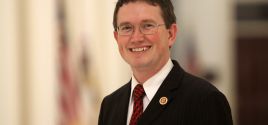Elon Musk Denied Request to Turn On Starlink to Facilitate Ukrainian Drone Attack on Crimea [UPDATED]Chris MenahanInformationLiberation Sep. 07, 2023 |
Popular 
ADL Urged Congress to Pass FISA Law Spying on Americans to 'Protect Israel'

Rep. Thomas Massie Warns Congress is Trying to Pass Hate Speech Laws to Outlaw Criticism of Israel

'Sniper Seen on Roof Overlooking Pro-Palestine Protest' at Indiana University

Mike Johnson Pushes Debunked Lie That Israeli Babies Were 'Cooked in Ovens' On October 7

Claim Jewish Student Was 'Stabbed In The Eye' by Pro-Palestine Protester Draws Mockery After Video Released
  UPDATE: Both Walter Isaacson and Elon Musk confirmed that Musk denied a Ukrainian government request to turn on additional Starlink coverage to facilitate a drone attack on Crimea. UPDATE: Both Walter Isaacson and Elon Musk confirmed that Musk denied a Ukrainian government request to turn on additional Starlink coverage to facilitate a drone attack on Crimea. "To clarify on the Starlink issue: the Ukrainians THOUGHT coverage was enabled all the way to Crimea, but it was not. They asked Musk to enable it for their drone sub attack on the Russian fleet. Musk did not enable it, because he thought, probably correctly, that would cause a major war," Isaacson clarified on Friday. "Much appreciated, Walter," Musk responded. "The onus is meaningfully different if I refused to act upon a request from Ukraine vs. made a deliberate change to Starlink to thwart Ukraine." "At no point did I or anyone at SpaceX promise coverage over Crimea," he continued. "Moreover, our terms of service clearly prohibit Starlink for offensive military action, as we are a civilian system, so they were again asking for something that was expressly prohibited. SpaceX is building Starshield for the US government, which is similar to, but much smaller than Starlink, as it will not have to handle millions of users. That system will be owned and controlled by the US government."
*** Original story follows *** A new biography on Elon Musk claims that Musk "secretly ordered his engineers to turn off his company's Starlink satellite communications network near the Crimean coast last year to disrupt a Ukrainian sneak attack on the Russian naval fleet," though Musk himself said he actually declined a request to turn additional satellites on. From CNN, "CNN Exclusive: 'How am I in this war?': New Musk biography offers fresh details about the billionaire's Ukraine dilemma": Elon Musk secretly ordered his engineers to turn off his company's Starlink satellite communications network near the Crimean coast last year to disrupt a Ukrainian sneak attack on the Russian naval fleet, according to an excerpt adapted from Walter Isaacson's new biography of the eccentric billionaire titled "Elon Musk."Musk did not respond to CNN's request for comment but did respond to the story on Twitter/X. "The Starlink regions in question were not activated," Musk said. "SpaceX did not deactivate anything."
"Both sides should agree to a truce," Musk said. "Every day that passes, more Ukrainian and Russian youth die to gain and lose small pieces of land, with borders barely changing. This is not worth their lives."
"There was an emergency request from government authorities to activate Starlink all the way to Sevastopol," he said in a follow-up tweet. "The obvious intent being to sink most of the Russian fleet at anchor. If I had agreed to their request, then SpaceX would be explicitly complicit in a major act of war and conflict escalation."
Ironically, the Ukrainian military (and by extension the war) is being kept alive entirely due to Starlink. If not for Starlink, Ukraine would have been forced to go to the negotiating table a long time ago. That said, Musk still deserves credit for advocating for peace while the bloodthirsty neocons running our government are doing everything in their power to escalate the war. Follow InformationLiberation on Twitter, Facebook, Gab, Minds and Telegram. |



